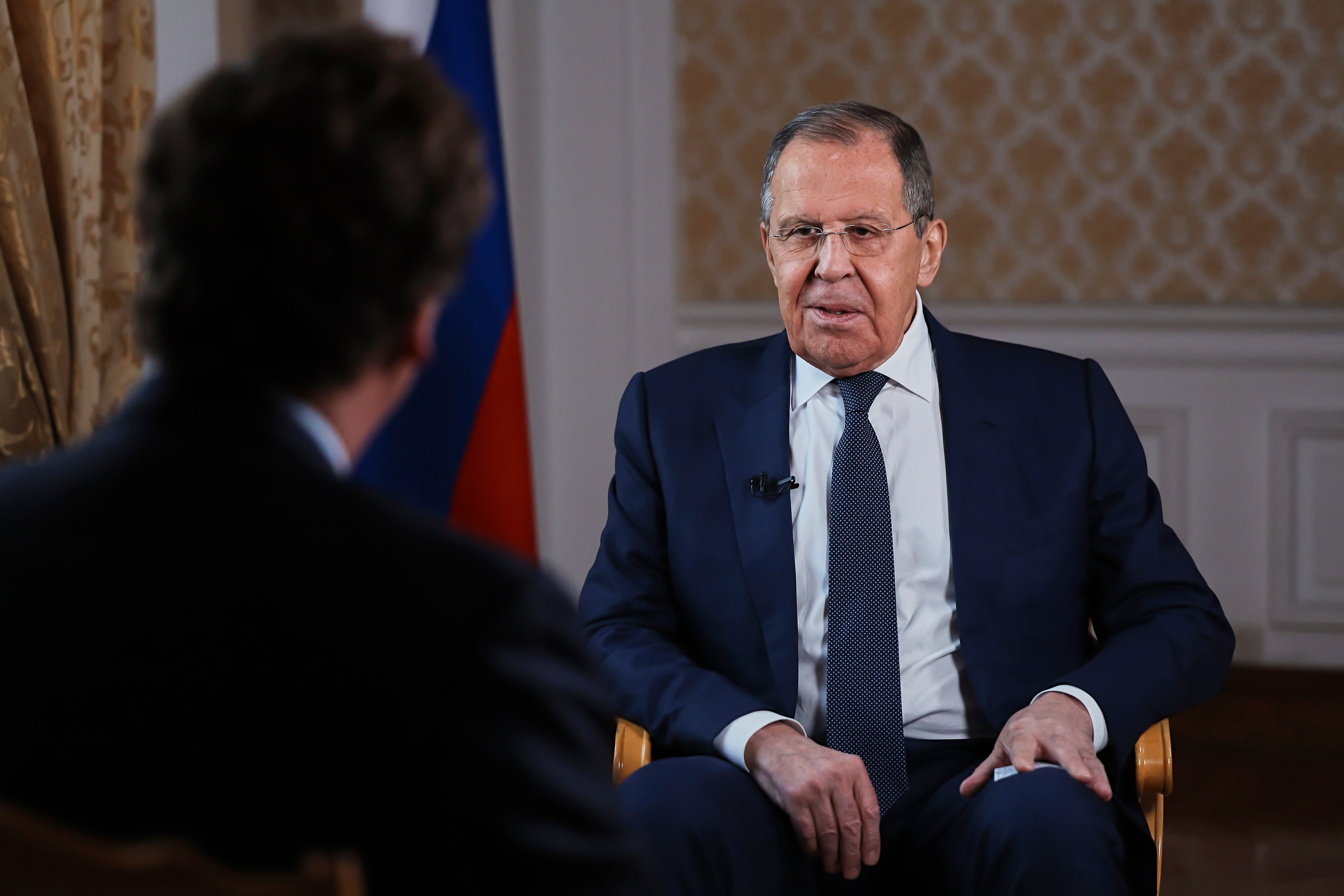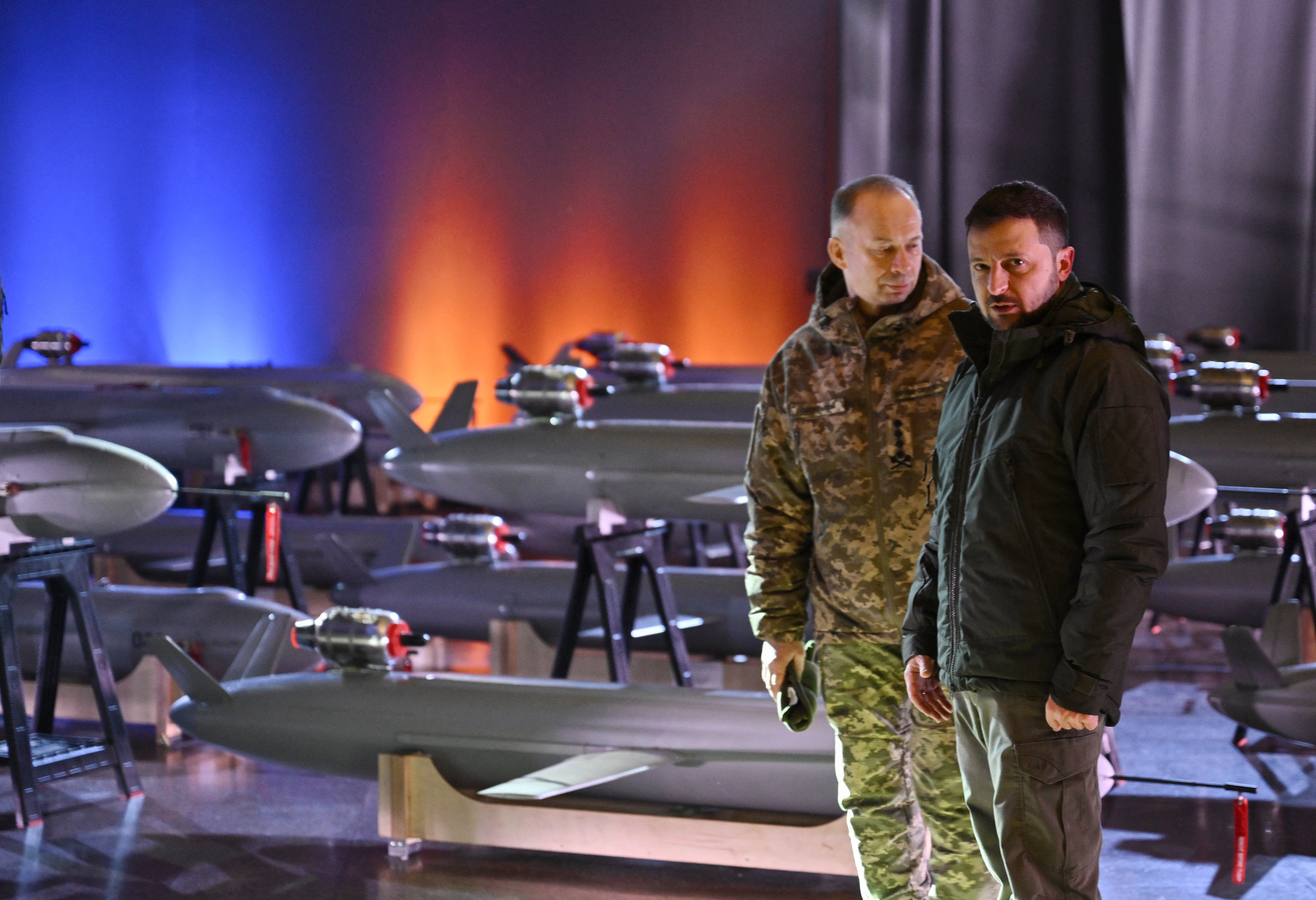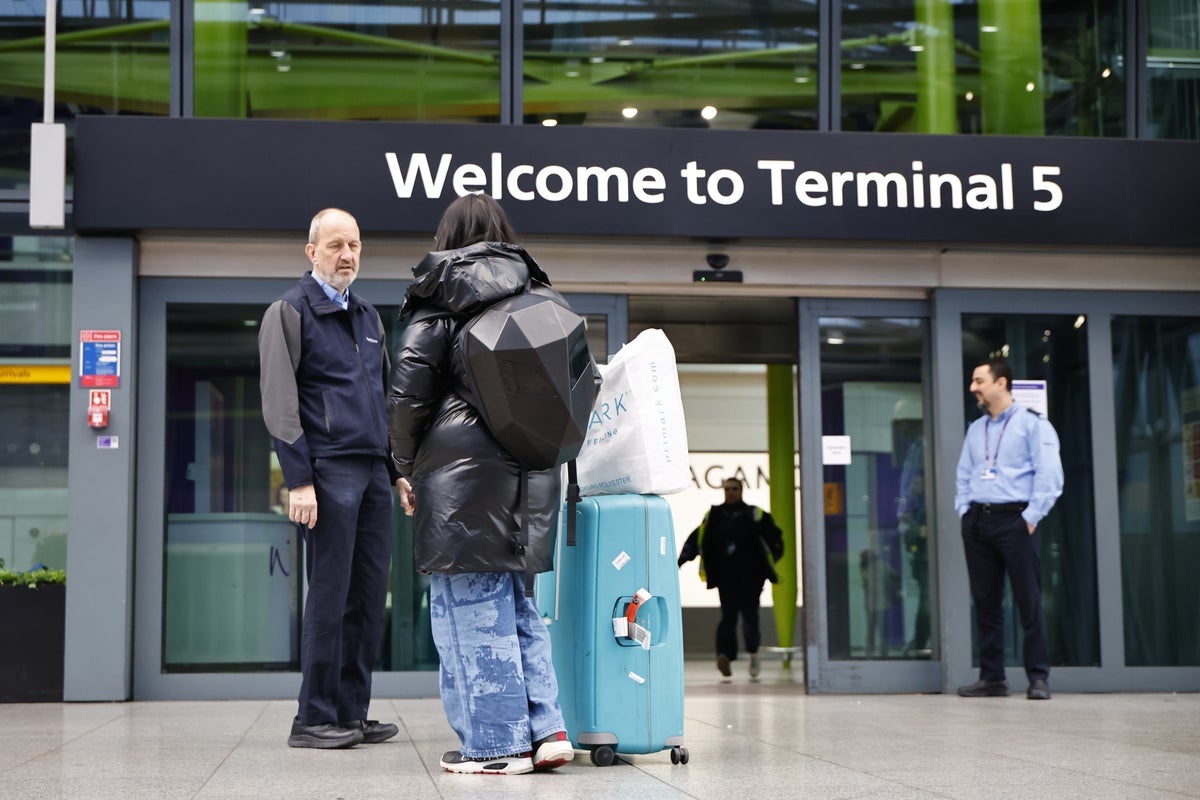The White House has devised a last-minute strategy to bolster Ukraine’s war efforts through significant military aid and sweeping new sanctions on Russia, according to a security briefing.
US national security adviser Jake Sullivan committed to delivering hundreds of thousands of artillery rounds, thousands of rockets, and hundreds of armoured vehicles by mid-January, during a meeting with Ukrainian presidential office head Andrii Yermak on Thursday.
The United States also plans to train Ukrainian troops outside the country and finalise $20bn in loans backed by frozen Russian assets, according to the briefing shared with the Guardian.
The strategy includes a final push of sanctions on Russia before US president-elect Donald Trump renters the White House. The move aims to weaken Russia’s war effort and enhance Ukraine’s leverage in future negotiations.
Meanwhile, Russia’s foreign minister Sergey Lavrov has said his country would be “ready to use any means” so that Moscow does not suffer “strategic defeat” against Ukraine.
Mr Lavrov also said the West should abandon any notion that Russia had no “red lines” and laid out conditions for peace in Ukraine, during the interview with American journalist Tucker Carlson.
Zelensky says Putin ‘does not need real peace’ after Russian strikes kill 12
Volodymyr Zelensky slammed Vladimir Putin over strikes that at least 12 in southeastern Ukraine.
At least 10 people were killed in Zaporizhzhia, while two were killed in Zelensky’s hometown Kryvyi Rih, regional officials said.
“Thousands of such strikes carried out by Russia during this war make it absolutely clear that Putin does not need real peace,” Zelensky said in a post on Telegram. “Only by force can we resist this. And only through force can real peace be established.”
Russia puts out feelers to Trump despite ‘red lines’
Russia is open to talks with US President-elect Donald Trump but will use “any means” to prevent Washington and its allies from defeating it in Ukraine, foreign minister Sergei Lavrov told US journalist Tucker Carlson.
In an 80-minute interview released late on Thursday, Mr Lavrov spoke positively of Mr Trump, who returns to the White House next month, despite urging the West to take Russia’s “red lines” seriously.
Mr Lavrov said Mr Trump was “a very strong person, a person who wants results” and said he saw no reason why the two countries could not “cooperate for the sake of the universe”.
Mr Lavrov’s comments were part of a pattern of Russian signals designed to deter Washington from further escalation in support of Ukraine while displaying openness to negotiations.
Read more on the interview here:
ICYMI: Putin signs agreement offering Russia’s security guarantees to ally Belarus
Russian President Vladimir Putin visited Belarus on Friday to sign a treaty offering security guarantees for Moscow’s closest ally, including the possible use of Russian nuclear weapons to help repel an aggression.
The signing of the document follows the publication of a revised version of Russia’s nuclear doctrine, which for the first time placed Belarus under the Russian nuclear umbrella amid the tensions between Moscow and the West over the Ukrainian conflict.
Speaking alongside Belarus’ President Alexander Lukashenko, Putin emphasized that the new document includes the potential use of Russian tactical nuclear weapons deployed to Belarus in response to an aggression.
“I’m sure that the treaty will ensure the security of Russia and Belarus,” Putin said in televised remarks.
After the two leaders signed the security pact, Lukashenko asked Putin to deploy more advanced weapons in Belarus, including the Oreshnik intermediate range ballistic missile that Russia used for the first time last month against Ukraine.
“I would like to publicly ask you to deploy new weapons systems, primarily Oreshnik, to Belarus,” Lukashenko said. “It will help calm some heads.”
Top Estonian tech firm to test AI-guided anti-drone missiles in Ukraine
A leading Estonian defence firm has said it will start testing anti-drone missiles in Ukraine in 2025.
The tests intend to check the system’s effectiveness in real combat conditions, Frankenburg Technologies said.
Recognised as Europe’s top technology startup, Frankenburg Technologies has developed missiles to intercept Iranian Shahed drones at altitudes of two kilometres using artificial intelligence for autonomous targeting.
“The technology is promising, and we will start testing it in Ukraine in the new year,” the company’s CEO Kusti Salm told Estonia’s public broadcaster ERR.
Production will start increase from a few dozen units per week to hundreds by the third quarter of 2025.
Foreign minister says in interview that Russia will use ‘all means’ to defend its interests
Russia’s top diplomat said in an interview with former Fox News host Tucker Carlson released on Friday that Moscow doesn’t want a war with the United States but will use “all means” to defend its interests.
Sergey Lavrov argued that while Russia and the U.S. are officially not at war, Washington’s permission for Ukraine to use American longer-range missiles for strikes on Russian territory marked a dangerous escalation.

“It is obvious that the Ukrainians would not be able to do what they’re doing with long-range modern weapons without direct participation of the American servicemen. And this is dangerous, no doubt about this,” he said, adding that the Western belief that Russia’s red lines could be “moved again and again” is “a very serious mistake.”
Read the full report here.
MI5 forced to shift focus from terrorism to Russia due to ‘finite capacity’
MI5 will be forced to turn focus away from terrorism and towards Russia and other hostile states as a result of the security agency’s “finite capacity”, its boss has said.
The agency will have to make “uncomfortable choices” in the face of “much more aggression from nation states”, said Ken McCallum, the director general of MI5.
“In effect, we had the 20 to 30-year holiday from that kind of big player, sophisticated states in serious conflict with each other. It’s back, I’m afraid,” he said in an interview recording obtained by The Times.
In a speech in October, the UK’s top security boss warned that Russia wanted to cause “mayhem” on British streets and that Iranian-backed plots which pose “lethal threats” to Britons are being ramped up at an “unprecedented pace and scale”.
Ukraine unveils new ‘rocket-drone’ to boost long-range strikes
Ukraine showed off a new locally-produced “rocket-drone” on Friday which it said could fly 700 km – more than twice the longest range attributed to missiles supplied by Western allies.
The unmanned craft, called “Peklo” – which means hell in Ukrainian – is the second “rocket drone” unveiled by Kyiv as it tries to increase its ability to strike deep into Russia.
Ukraine‘s arms production minister told Reuters in November the “rocket-drone” could be viewed as something akin to a cruise missile, which flies low on a guided path to its target, usually below the speed of sound.

Russian rouble rebounds after Putin’s gas payment decree
The Russian rouble has rebounded past 100 to the US dollar, trading at 99.50 on Friday, after a decree by president Vladimir Putin which opened new payment options for European buyers of Russian gas, allowing foreign currency flows to resume.
The rouble strengthened by 1.5 per cent against the dollar, according to bank data.
Putin’s decree meant that European buyers of Russian gas, including Hungary and Slovakia, who previously used Gazprombank for their transactions, could now convert their currency into roubles in other banks that are not under sanctions.
The US sanctions imposed on Gazprombank on November 22 disrupted Russia‘s foreign currency market, leading to a 15 percent fall in the rouble exchange rate against the dollar.

EU envoys fail to approve 15th sanctions package on Russia
The European Union failed to approve its 15th sanctions package on Russia, reported Reuters, citing unnamed diplomatic sources.
Most oil imports from Russia were banned by the EU after the invasion of Ukraine in 2022, but Czechia, Slovakia, and Hungary received exemptions due to their limited access to alternatives.
Two EU member states blocked the adoption of the sanctions package due to disagreements over extending the timeframe provided to European companies to withdraw investments from Russia.
Member states have said they will revisit the sanctions later.Debates were also held over extending the exemption, which expired on 5 December, that allowed Czechia to import diesel fuel and other products derived from Russian oil.
Putin’s cousin accidentally reveals secret figure relating to Russian losses
A family member of Russian president Vladimir Putin accidentally revealed what is likely a confidential tally of the appeals by relatives of soldiers who submitted DNA samples.
Anna Tsivilyova, the daughter of Mr Putin’s cousin and a deputy defence minister, said the government received tens of thousands of appeals from relatives trying to trace soldiers, dead or missing, through DNA samples.
Ms Tsivilyova said in a video, published by the independent Astra Telegram channel, the ministry received 48,000 requests from relatives of Russian troops.
Source: independent.co.uk



